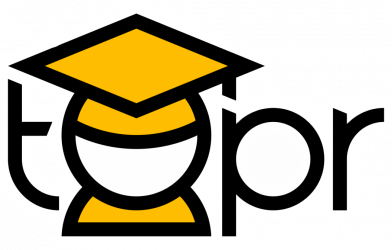Description With more higher education experiences moving online, students have fewer opportunities to practice their verbal communication skills compared to traditional face-to-face environments. Speeches, presentations, and recitations that students might engage in within a traditional brick and mortar classroom may be less feasible online, and students also miss out on the typical questioning, conversation, and …
Continue reading “Adapting the Canvas Quiz to Practice Verbal Communication”
Related Tags:
Assessment,
Assignment,
Communication,
Course Design
This strategy highlights the benefits of using a Complete/Incomplete, single-criteria rubric for online discussions to increase student success and reduce instructor grading.
Related Tags:
Assessment,
Discussions,
Instructor Presence
Description The current technology-infused and globalized job market is putting pressure on students to apply knowledge and use it to solve complex problems (Pham & Sampson, 2022). As a result, instructors in higher education often encounter difficulty in designing and guiding learning experiences that are relevant and like what students could face in their jobs …
Continue reading “Using a Business Proposal to Develop Students’ Problem-Solving Skills and Entrepreneurship”
Related Tags:
Assessment,
Business Proposal,
Creativity,
Entrepreneurship,
instructional strategy,
Peer-Reviewed Entry
Description Large Language Models (LLMs) that generate text, such as OpenAI’s ChatGPT, can support authentic assessment by facilitating opportunities for professional roleplaying. ChatGPT responds to user prompts in a conversational structure, and it builds on previous content as the dialogue continues. In an asynchronous online environment, this immediate feedback can simulate a live conversation. Therefore, …
Continue reading “Use Large Language Models to Simulate Professional Roleplaying as Opportunity for Authentic Assessment”
Related Tags:
Assessment,
ChatGPT,
Generative Artificial Intelligence,
Large Language Models,
Learning Activities,
Peer-Reviewed Entry,
Scaffolding
Description Student learning is more impactful when meaningful reflection is integrated into course design (e.g., Lee & Sabatino, 1998). Providing students with the opportunity to think about their learning experiences and articulate connections to their personal, professional and academic goals can help them better prepare for career success and lifelong learning (e.g., Rolfe, Jasper, & …
Continue reading “Apply the DEAL Model of Critical Reflection to Maximize Learning in Blogs”
Related Tags:
Assessment,
Blog,
Peer-Reviewed Entry,
Reflection
Description Assessing knowledge for individual students online can be a challenge, let alone when in groups. Add the remote learning conditions of the COVID-19 pandemic, and the challenges increase even more to offer accessible, inclusive, and equitable learning experiences. Technologies such as Padlet allow remote learners to virtually collaborate on a single product. One such …
Continue reading “Incorporate Online Group Assessment Through Virtual Posters”
Related Tags:
Assessment,
Group Work,
Interaction,
Padlet,
Peer-Reviewed Entry,
Poster
Description Traditional gallery walks let students stroll through the classroom viewing their peers’ work, which is often set up on the top of their desks. At its heart, a gallery walk is an interactive, discussion technique where students move around the room, actively analyze information, and provide peers with feedback about their work (Fasse & …
Continue reading “Digitalizing Gallery Walks: A Method for Student-Centered Feedback and Engagement”
Related Tags:
Assessment,
Collaborative Learning,
Interaction,
Peer-Reviewed Entry,
Social Presence
Description In the COVID new normal, many courses have changed modality or had to displace the face-to-face classroom in an e-campus. The problematic for Humanities courses that heavily rely on research and collaboration is how to redefine the connection between instructor and students, and how to create fruitful research collaboration among students in a delocalized …
Continue reading “Boosting Engagement in Research in a Synchronous Online Foreign Language Class: Using an E-Conference Format, Peer-Reviewing and Pressbooks”
Related Tags:
Assessment,
Cooperative Learning,
Foreign Language,
Formative,
Peer-Reviewed Entry,
Synchronous
Description Most often, the conversation about personas in higher education has been focused on teaching persona, which is “who you are, what your beliefs are personally and professionally, and how you present (project) yourself in the online classroom” (Huang, Hurt, & Richardson, 2018, para. 1). While teaching persona is intended to convey the real person, …
Continue reading “Incorporate Online Student Personas to Promote Faculty Empathy and Reflection”
Related Tags:
Assessment,
Faculty Development,
Learning Object,
Simulation,
Widgets
Description Shifting the passive classroom environment of a faculty lecturing and students note-taking to an interactive engaging learning environment has exposed many students to using polling such as clicker technology or online polling software. In addition, many faculty have engaged Dr. Eric Mazur’s technique of polling (Lambert, 2012) which poses questions for students to answer …
Continue reading “Using Collaborative Exams to Reinforce and Deepen Learning”
Related Tags:
Active Learning,
Assessment,
Collaborative Learning,
exams,
peer teaching,
Peer-Reviewed Entry,
polling,
quiz


